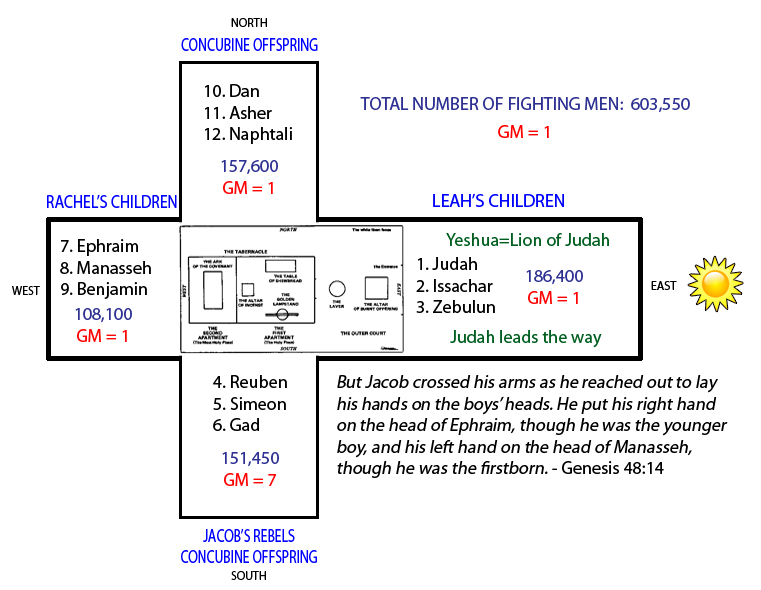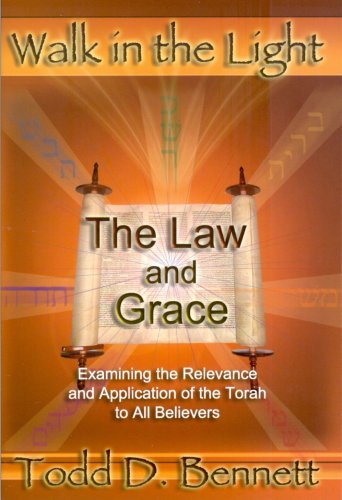Numbers Week 35: Naso

Numbers Bible Study:
Naso (Make an accounting)
The Scriptures for this week’s study:
TORAH:
Numbers 4:21 – 7:89
PROPHETS:
Judges 13:2-25
Matthew 26:14-45; 27:34;
John 7:37-8:11;
Acts 21:17-32
QUICK SUMMARY OF THIS TORAH PORTION:
ARCHIVE OF OUR STUDIES:
2013 Broadcast:
2014 Broadcast:
2017 Broadcast:
2020 Broadcast:
2021 Broadcast:
STUDIES DONE BY OTHERS:
Ardelle’s “Your Living Waters”
Torah Commentary:
- http://yourlivingwaters.com/Numbers/Naso-Commentary-2008.pdf
- http://yourlivingwaters.com/Numbers/Naso-Commentary-2009.pdf
Workbook Discussion Questions:
How does this week’s Torah Portion Relate to the Haftarah and Brit Chadasha Portions?
What did you find most interesting about this week’s reading?
What is the general theme of this reading and how does it apply to our lives today?
Notes From This Study:
1 Corinthians 10:11
New Revised Standard Version (NRSV)
11 These things happened to them to serve as an example, and they were written down to instruct us, on whom the ends of the ages have come.
-
-
- who you are (Genesis)
- where you should be going (Exodus)
- to be Set Apart and Holy (Leviticus)
- to Trust YHWH as He guides you (Numbers)
- to OBEY HIS INSTRUCTIONS so you may Live (Deuteronomy)
-
This will not be too hard for you, because Messiah laid down His Life to make it possible for you to “Get in Covenant” with His Father! He even sent His Set Apart Spirit to give you strength to finish the Race! If you think of yourself as a “Gentile Christian” you may be suffering from Spiritual Identity Theft. The only Cure is to start at the very BEGINNING.
Rob’s Busted Foot (2013):
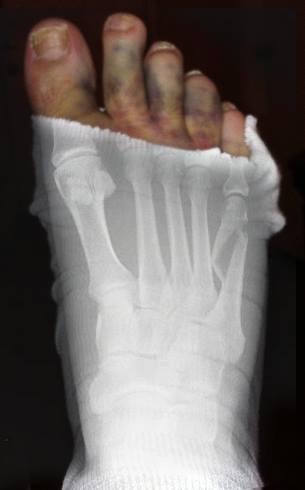

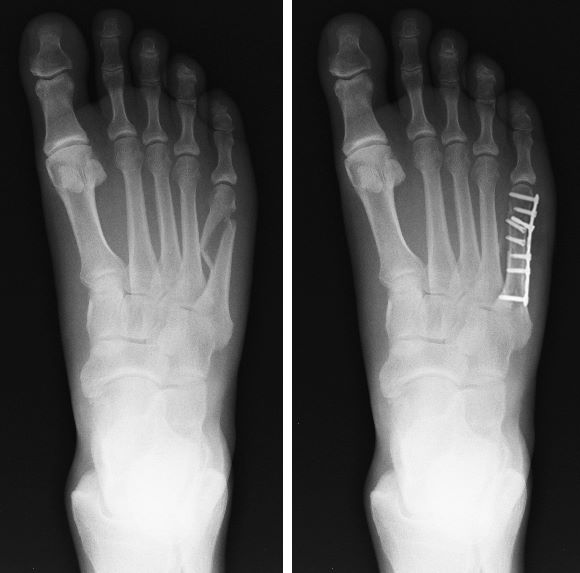
The Tabernacle, the People and the Cross:
Redeeming the Bride Blogs:
- Redeeming the Bride Part 1
- Redeeming the Bride Part 2: Drinking the Cup
- Did Yeshua Take a Nazarite Vow?
The NSRV has the translation of Numbers 5:22 and 27 wrong:
Numbers 5: (NRSV)
22 now may this water that brings the curse enter your bowels and make your womb discharge, your uterus drop!” And the woman shall say, “Amen. Amen.”27 When he has made her drink the water, then, if she has defiled herself and has been unfaithful to her husband, the water that brings the curse shall enter into her and cause bitter pain, and her womb shall discharge, her uterus drop, and the woman shall become an execration among her people.
yarek: thigh, loin, side, baseOriginal Word: יָרֵך
Part of Speech: Noun Feminine
Transliteration: yarek
Phonetic Spelling: (yaw-rake’)
Short Definition: thigh
beten: belly, body, wombOriginal Word: בָּ֫טֶן
Part of Speech: Noun Feminine
Transliteration: beten
Phonetic Spelling: (beh’-ten)
Short Definition: womb
Numbers 5: (KJV)
17 And the priest shall take holy water in an earthen vessel; and of the dust that is in the floor of the tabernacle the priest shall take, and put it into the water:
18 And the priest shall set the woman before the Lord, and uncover the woman’s head, and put the offering of memorial in her hands, which is the jealousy offering: and the priest shall have in his hand the bitter water that causeth the curse:
19 And the priest shall charge her by an oath, and say unto the woman, If no man have lain with thee, and if thou hast not gone aside to uncleanness with another instead of thy husband, be thou free from this bitter water that causeth the curse:
20 But if thou hast gone aside to another instead of thy husband, and if thou be defiled, and some man have lain with thee beside thine husband:
21 Then the priest shall charge the woman with an oath of cursing, and the priest shall say unto the woman, The Lord make thee a curse and an oath among thy people, when the Lord doth make thy thigh to rot, and thy belly to swell;
22 And this water that causeth the curse shall go into thy bowels, to make thy belly to swell, and thy thigh to rot: And the woman shall say, Amen, amen.
Did Yeshua take the curse of the adulterous wife onto Himself? Consider the following…
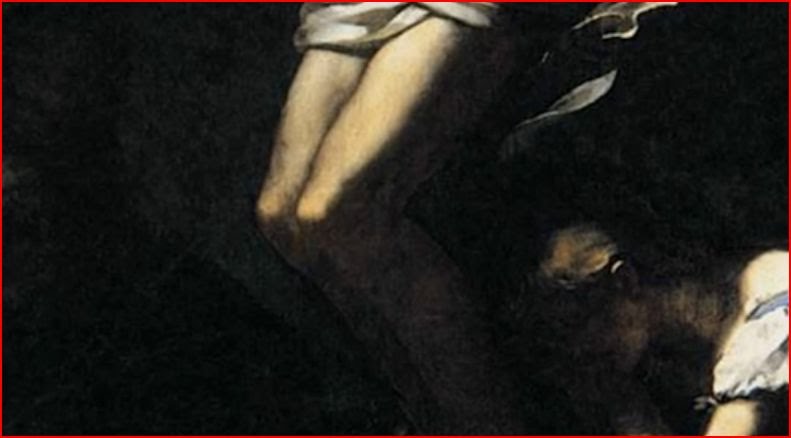

The Bride Redeemed From Filth From the Harlot Church System:
Colossians 2 (KJV)
13 And you, being dead in your sins and the uncircumcision of your flesh, hath he quickened together with him, having forgiven you all trespasses;
14 Blotting out the handwriting of ordinances that was against us, which was contrary to us, and took it out of the way, nailing it to his cross;
Did Paul really teach against the law? Was he a hypocrite? Did he take a Nazarite vow? Many suggest he did:
Colossians 2 (KJV)
13 And you, being dead in your sins and the uncircumcision of your flesh, hath he quickened together with him, having forgiven you all trespasses;
14 Blotting out the handwriting of ordinances that was against us, which was contrary to us, and took it out of the way, nailing it to his cross;
Paul’s Nazirite Vow – Acts 18:18
Paul Kept A Nazirite Vow – Acts 18:18
Acts 18:18-19 So Paul still remained a good while. Then he took leave of the brethren and sailed for Syria, and Priscilla and Aquila were with him. He had his hair cut off at Cenchrea, for he had taken a vow. NKJV
Let’s be clear. There’s no explicit reference in this scripture to a Nazirite vow, but let’s see what the commentaries have to say about this.
Commentators Agree That Paul Kept A Nazirite Vow
Firstly the Wycliffe Bible Commantary. Acts 18:18
Paul now stayed in Corinth ….Before leaving Corinth, he assumed a Nazarite vow (see Num 6:1-21) which was an OT act of thanksgiving or of dedication to God. During the period of the vow, the devotee allowed his hair to grow uncut, and at the end of the period he cut his hair. ………. As he came to Cenchrea, the eastern port of Corinth, on his way to Syria and Palestine, the time of his vow elapsed, and he therefore cut his hair.(from The Wycliffe Bible Commentary, Electronic Database. Copyright (c) 1962 by Moody Press)
Barnes Notes 1997 Acts 18:18
[For he had a vow] …. The most remarkable vow among the Jews was that of the Nazarite, by which a man made a solemn promise to God to abstain from wine, and from all intoxicating liquors, to let the hair grow, not to enter any house polluted by having a dead body in it, or to attend any funeral. This vow generally lasted eight days, sometimes a month, sometimes during a definite period fixed by themselves, and sometimes during their whole lives…. Those who made the vow out of Palestine, and who could not come to the temple when the vow was expired, contented themselves with observing the abstinence required by the Law, and cutting off the hair where they were. This I suppose to have been the case with Paul. His hair he cut off at the expiration of the vow at Cenchrea, though he delayed to perfect the vow by the proper ceremonies until he reached Jerusalem, Acts 21:23-24. (from Barnes’ Notes, Electronic Database. Copyright (c) 1997 by Biblesoft)
Expositors Bible Commentary says:
Nevertheless, that Paul cut his hair at Cenchrea shows that he had earlier taken a Nazirite vow for a particular period of time that had now ended. Such a vow had to be fulfilled at Jerusalem…
Keil & Delitzsch Commentary on Numbers 6:
“On other cases of this kind in the Talmud, and particularly on the later form of the Nazarite vow-for example, that of the Apostle Paul (Acts 18:18) – see Winer, bibl. R. W. ii. pp. 138-9, and Oehler in Herzog’s Cycl.)” (from Keil & Delitzsch Commentary on the Old Testament: New Updated Edition, Electronic Database. Copyright (c) 1996 by Hendrickson Publishers, Inc.)
Now let’s take a look at what Matthew Henry has to say. Acts 18:18-23
At Cenchrea, which was hard by Corinth, the port where those that went to sea from Corinth took ship, either Paul or Aquila (for the original does not determine which) had his head shaved, to discharge himself from the vow of a Nazarite:
Matthew Henry then goes on to argue that Paul kept a Nazirite vow to be “all things to all men”. Was Paul really a hypocrite?
Remarkably then, in the view of all of these commentators, Paul himself kept the “ritualistic old testament law” of the Nazirite vow, but at the same time was preaching that it was all “done away with”.
Doesn’t that argument beg some rather big questions?
The Tribulation Protection Plan:
Exodus 34:21-24 (NLT)
21 “You have six days each week for your ordinary work, but on the seventh day you must stop working, even during the seasons of plowing and harvest.
22 “You must celebrate the Festival of Harvest with the first crop of the wheat harvest, and celebrate the Festival of the Final Harvest at the end of the harvest season. 23 Three times each year every man in Israel must appear before the Sovereign, the Lord, the God of Israel. 24 I will drive out the other nations ahead of you and expand your territory, so no one will covet and conquer your land while you appear before the Lord your God three times each year.
Leviticus 26:3-13 (NRSV)
3 If you follow my statutes and keep my commandments and observe them faithfully, 4 I will give you your rains in their season, and the land shall yield its produce, and the trees of the field shall yield their fruit.5 Your threshing shall overtake the vintage, and the vintage shall overtake the sowing; you shall eat your bread to the full, and live securely in your land. 6 And I will grant peace in the land, and you shall lie down, and no one shall make you afraid; I will remove dangerous animals from the land, and no sword shall go through your land. 7 You shall give chase to your enemies, and they shall fall before you by the sword. 8 Five of you shall give chase to a hundred, and a hundred of you shall give chase to ten thousand; your enemies shall fall before you by the sword. 9 I will look with favor upon you and make you fruitful and multiply you; and I will maintain my covenant with you. 10 You shall eat old grain long stored, and you shall have to clear out the old to make way for the new. 11 I will place my dwelling in your midst, and I shall not abhor you. 12 And I will walk among you, and will be your God, and you shall be my people. 13 I am the Lord your God who brought you out of the land of Egypt, to be their slaves no more; I have broken the bars of your yoke and made you walk erect.
Also listen to John William Galt (the voice of the movies) reading Psalm 91:

